My 100-year-old Jewish father, a World War II veteran, recently asked me a question with concern: “Where is all this antisemitism coming from?”
His question was spurred by the horrific increase in antisemitism since Hamas' Oct. 7 attack on Israel. The Anti-Defamation League has recorded more than 2,000 antisemitic acts in the United States − an increase of 337% − in the two months since Hamas terrorists slaughtered 1,200 men, women and children.
"The lid to the sewers is off, and Jewish communities all across the country are being inundated with hate," Jonathan Greenblatt, CEO of the ADL, has said.
Yet, the deeper answer to my father's question is that the history of antisemitism in the United States is long and sordid.
After World War I, universities imposed quotas on how many Jewish students they would admit. Certain neighborhoods, hotels and clubs excluded Jews. Auto magnate Henry Ford promoted antisemitic propaganda, stating that Jews sought to control the world’s economy, beliefs that Adolf Hitler praised in his infamous "Mein Kampf."
In the late 1930s, antisemitism and pro-Nazi sentiment were rampant and growing. In fact, when my father was graduating from the renowned Brooklyn Technical High School in New York, he sacrificed his final grade and valedictorian status by standing up for a fellow Jewish student who was being picked on by an antisemitic teacher.
Julianna Margulies: My non-Jewish friends, your silence on antisemitism is loud
Nazis gained a foothold in America before World War II
In 1939, on the precipice of World War II, famed national radio announcer Walter Winchell condemned a rally of 20,000 Nazi sympathizers at Madison Square Garden in New York City. He also criticized Charles Lindbergh, an American hero and international celebrity who became an apologist for the Nazis.
Lindbergh's bigotry inspired my teacher and mentor Philip Roth to write a great novel, "The Plot Against America," exploring how U.S. history might have unfolded had Lindbergh's dangerous views prevailed.
Yet, World War II galvanized Americans against a common enemy in a way we can certainly learn from now. Our military were liberators, freeing Europe from the oppressive evil that would cast others as subhuman to justify genocide.
The massive patriotism of that generation and societal sacrifice triumphed over all naysayers and Nazi sympathizers, including Lindbergh and his America First Committee. Most Americans celebrated the role they played together in freeing the world, and antisemitism was at a low.
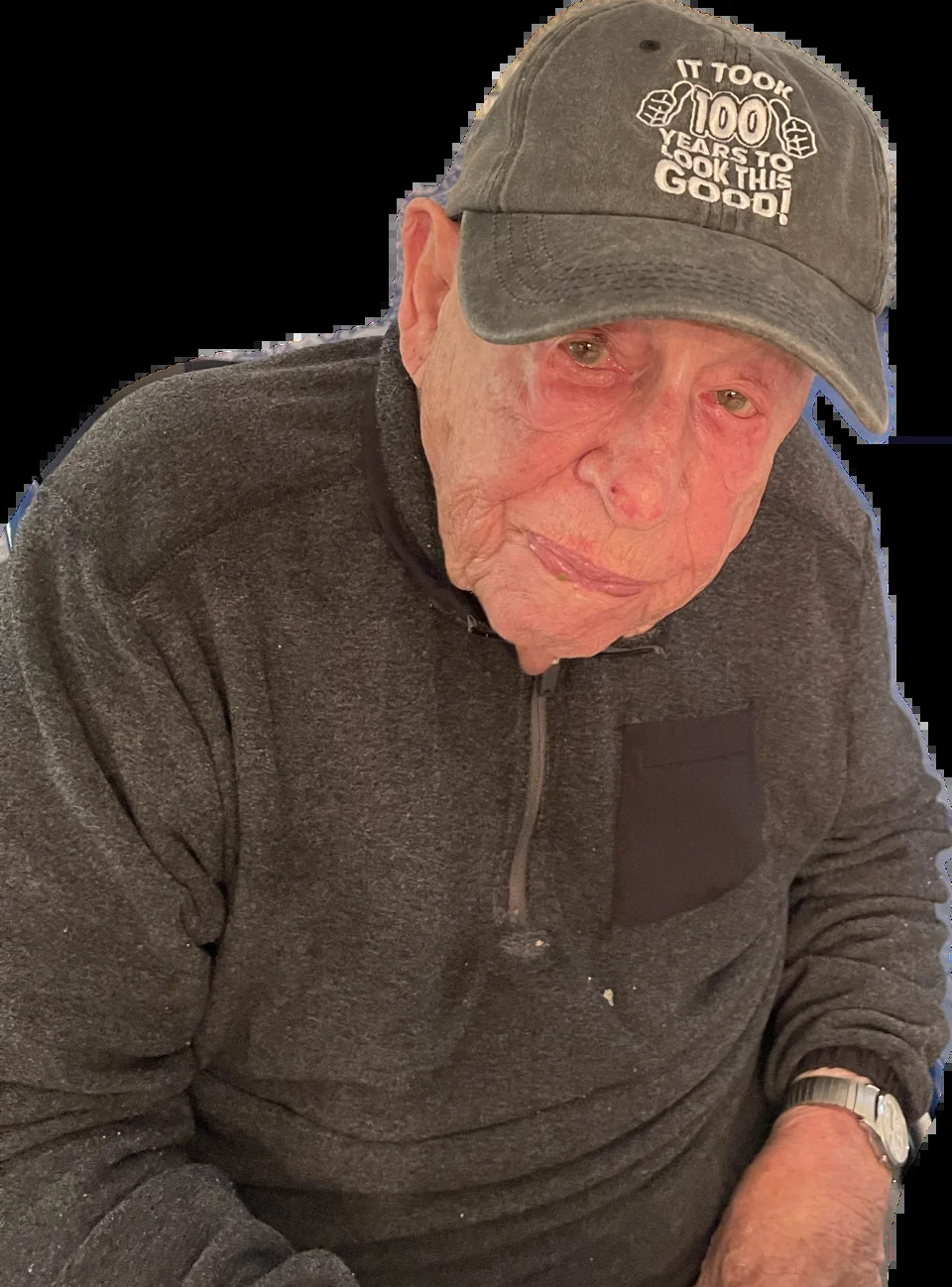
When my father says antisemitism appears to be far greater now in the United States than during World War II, he is right. During the war, 550,000 Jews, including my dad, served in the U.S. military, and the country came together in a singular fight against the Nazis.
This positive sentiment carried over into the golden era of post-war America. When I was growing up in the 1960s and '70s, I felt little antisemitism, but then it began to creep slowly back, fueled by hate groups.
Where will the wave of hate go next? The rising hate in America now is alarming.
The antisemitism story of 2023 isn’t about freedom of speech or academic freedom.
It's about meanness and divisiveness, flames fanned by the cruelty of social media, where it is too easy to hide anonymously behind cruel expression.
George W. Bush offers wise advice
I recently interviewed former President George W. Bush on his ranch in Crawford, Texas, where he gave sage advice for our country. History goes in cycles, he said, and we are in the midst of a dark time, a down cycle, but we will come back up to the light.
In the meantime, he said, “We need hugging instead of yelling.”
I couldn’t agree more. Jews are sensitive to the word "genocide," considering that the Holocaust occurred only 80 years ago. But the rest of the world needs to be sensitive to it, too.
The issues have not been this clear or sharply focused since perhaps World War II.
Israel has a right to defend its borders. Hamas is monstrous and engages in tactics reminiscent of the Nazis. They need to be eradicated if Israel is ever to feel secure.
At the same time, the humanitarian crisis in Gaza also is disturbing and deserving of the world’s attention. Efforts to provide medical and humanitarian relief for Palestinians are crucial.
President Bush is right. Hugging may have been a problem a few years ago for fear of spreading infection, but it is certainly the right medicine for all of us now.
Jewish Americans of all ages forced to ‘make a choice’ on embracing heritage amid rising antisemitism.
There is a rise in antisemitism in America and worldwide after the Palestinian terrorist group Hamas' deadly Oct. 7 terrorist attack on innocent Israeli civilians and the Jewish nation's retaliation.
Now, young American Jews have to choose whether to identify their heritage in public.
While many Jewish Americans have been galvanized by public antisemitism, it's a different decision when it comes to young children.
A young Jewish woman from Seattle, who asked to remain anonymous, told Fox News Digital she wears a Star of David "every single day." But since the attack, she and her husband have trepidation about allowing their daughters to identify as Jewish at school.
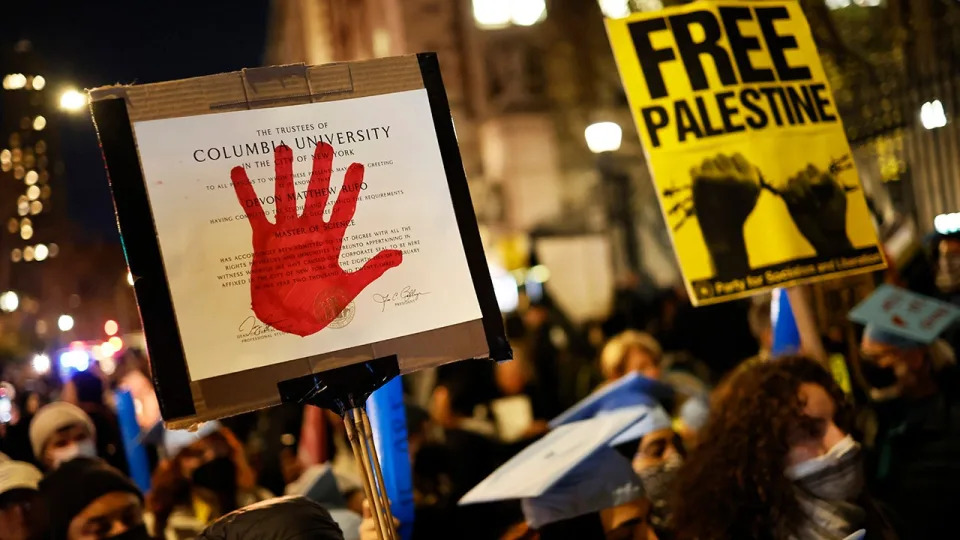
"My husband and I have chosen to keep an ‘I stand with Israel’ sign in our window, even though his parents, who are Israeli, have begged us to take it down because they're terrified," the woman said.
"But we've chosen to do that. But the one caveat to that is our daughters — one of them is in a public school kindergarten, the other is in a private preschool — they have Star of David necklaces," the woman continued.
"And they asked to wear them. And my husband and I are just terrified because it's one thing to have to show our Jewish identity," she said. "But to send your kid off to school wearing that, you kind of have to question, ‘Do I protect their safety or do I protect their Jewish pride?’"
The woman said she has had people come to talk to her about her Jewish identity since she's been wearing her Star of David, but she hasn't experienced "any direct antisemitism."
"But we've seen a lot of community-wide issues. Jewish businesses having their windows smashed in, the [Jewish Community Center] having their flag torn down," "One of the synagogues had horrendous graffiti, just destruction of their synagogue."
The woman said there is "so much going on that it's hard as a parent to make the choice between protecting your children's safety or identity.
"And, all of the sudden, you're a hell of a lot more paranoid then you ever were."
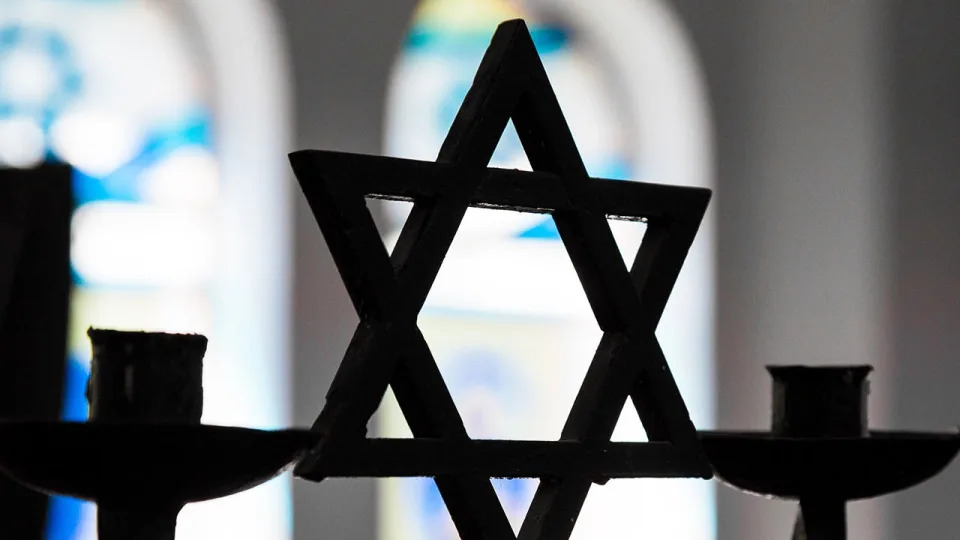
Rabbi Micah Greenland, the international director of NCSY and the Jewish Student Union (JSU), told Fox News Digital the surge in antisemitism is making many young Jews feel unsafe to identify as Jewish.
Simultaneously, many young Jews are embracing their heritage and religion amid the increase in attacks on Jewish businesses and reports of harassment of Jews on campuses.
"We are simultaneously seeing two opposite trends regarding teens' Jewish identities during this period of rising visible antisemitism," Greenland said. "On one hand, there are some teens who are terrified to identify publicly as Jewish. They are doing all that they can to disassociate with their Judaism right now, which is tragic.
"But those are the minority. Far more common are the thousands who are intentionally associating even more proudly as Jews, wearing a kippah (head covering) or a Star of David necklace specifically now, or taking on an aspect of Jewish observance that they hadn't previously embraced.
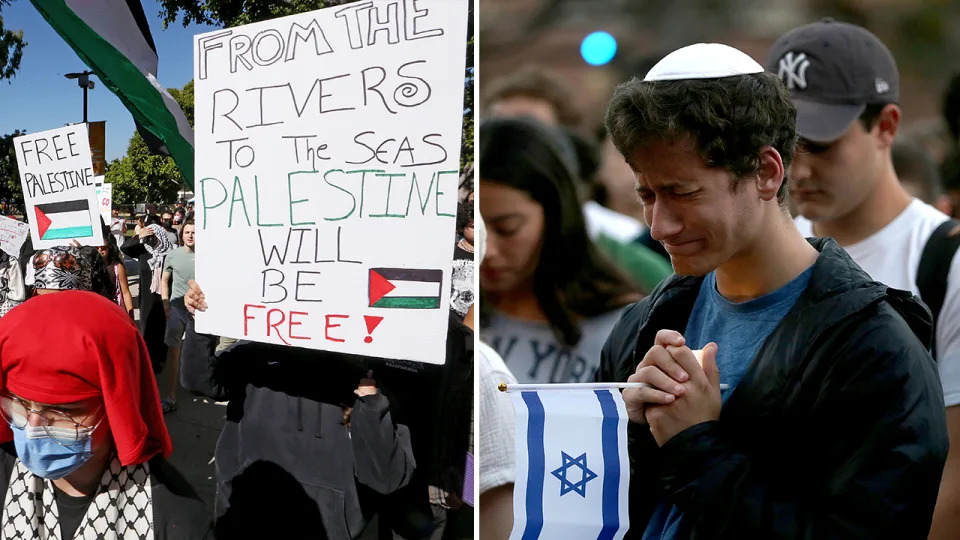
"There is a strong feeling that showing one's Jewish pride is more important now than ever — and that's the far more prevalent attitude we are seeing amongst Jewish teens."
Greenland and Natan Cohen, the director of marketing for NCSY, an organization dedicated to inspiring Jewish teens, said the surge in antisemitism infecting America is appearing in ways that they have not experienced in their lifetimes.
The pair said that the rise in antisemitism is making public schools unsafe for many Jewish adolescents and is causing "significant loneliness" and "isolation" for Jewish teens in public schools "who are also experiencing incidents that target them, their Jewish identity and the state of Israel."
Greenland and Cohen said that, even amid the rise in Jewish hate, there has been a surge in people asking for JSU clubs on campus.
Thirty clubs have launched since Oct. 8, and there have been 60 requests for JSU clubs at schools without them, the pair said. They also said that JSU is now providing support to communities in several forms, including staff training for mental health, a partnership with the Anti-Defamation League (ADL), Israel education and other initiatives.
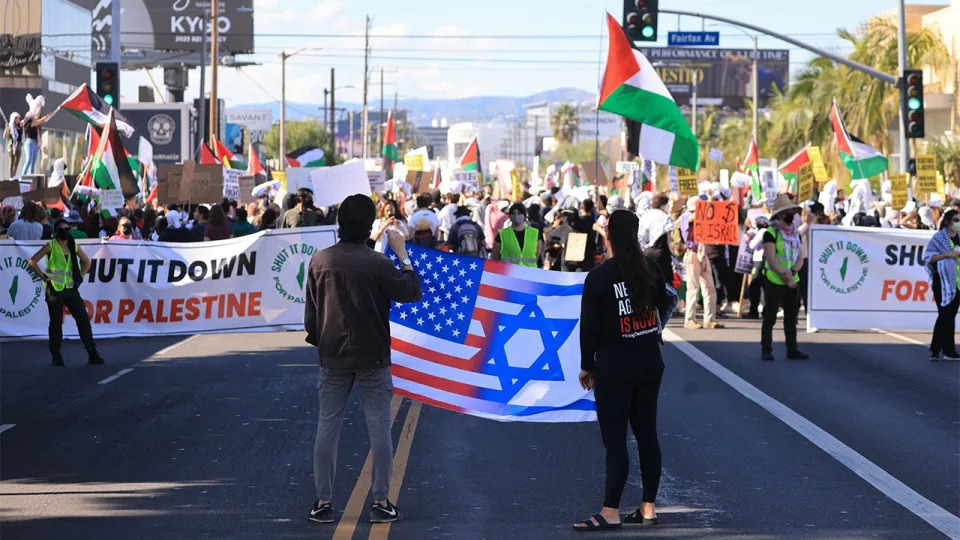
Danielle Ben Salamon, a public high school senior from Los Angeles, told Fox News Digital she is proud to identify as Jewish and that allowing people to make her feel like she can't "let the people who hate you win."
"At first, when it started happening, I had my IDF hoodie and my Star of David, and I was debating, ‘Do I keep this on?’" Salamon said. "Because I did get weird looks sometimes, and if I was walking around, I would probably scootch a little closer to whoever I was walking with.
"But eventually I realized that, if I hide it, it's worse for me than if I show it because I like to be proud of who I am, and I think that hiding it lets the people who hate you win.
"And I kind of ignore if I get dirty looks or anything like that. But I do get them."
Salamon said the Jewish community in her school is "really supporting each other" and that "one of the good things that could have happened out of this did happen, which is that a lot of us are standing as one."
Mikayla Rosenwasser, a Jewish high school senior from Orlando, Florida, told Fox News Digital she is not afraid to express her Jewish heritage.
Rosenwasser also said she feels "openly proud" of her Judaism and that her Jewish peers have not expressed to her a fear of identifying as Jewish.
"Yes, we're always a little worried about what people could possibly say," Rosenwasser said. "But, for the most part, nobody has expressed anything that they're concerned about that or anything like that."
One troubling breeding ground for antisemitism comes from higher education, according to Greenberg, who sees a pipeline of radical thinking from college graduates who become high school teachers.
Greenberg said the "activist nature" on college campuses right now has students learning to separate people into the "oppressed" and "oppressors" or "other divisions" with little to no regard for "nuance."
The rabbi said the college graduates returning to teach in high schools are bringing with them ideological viewpoints they learned in college.
The young Jewish woman from Seattle shared in Greenberg's sentiment, saying it is "one of the greatest factors."
She said the current generation of college students is "not afraid to speak out," but they're also the generation "who are blindly following causes because they're being told to do so."
"I think all these minds are being shaped in these universities, right? These are the people who are going to be leading," she said. "They're going to be the next political figures, they're going to be the next leaders in one way or another.
"And their minds are being shaped by people who are not providing correct facts, or I think that all the information, they're conveniently leaving some of it out. So, it's kind of terrifying."


